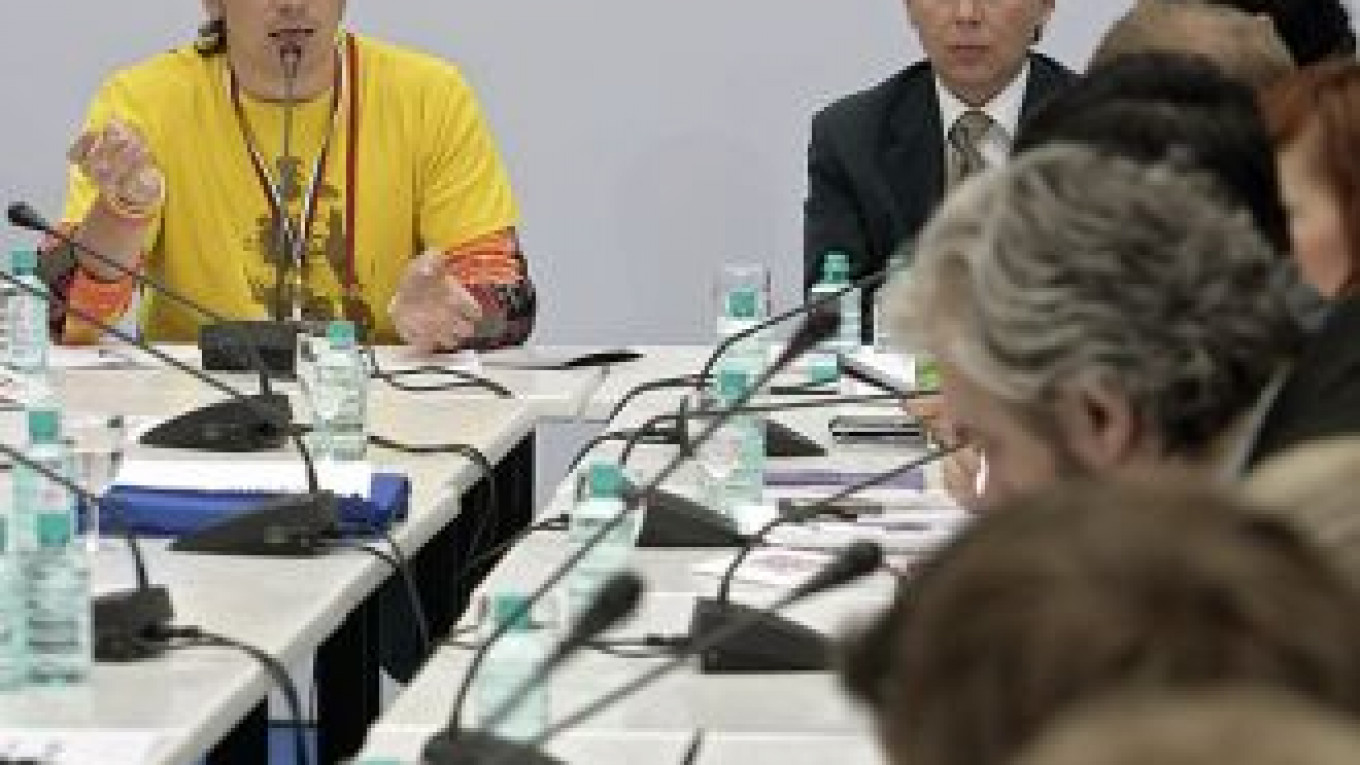Yevroset co-owner Alexander Mamut is preparing the country's largest phone retailer for a London initial public offering next year, allowing him to make a profit on the company he bought during the crisis for $200 million to $300 million.
The company is selecting organizers for the IPO, three investment bankers told Vedomosti. A Yevroset executive confirmed the information and said the company could be listed on the London Stock Exchange next year.
About 30 percent of the company will be sold, he said, but a final decision on the IPO will be made Nov. 20.
Mobile operator VimpelCom, which owns 49.9 percent of the retailer, will decide whether it will sell part of its stake only after a decision on the IPO is made, spokeswoman Yelena Prokhorova said.
Vedomosti's sources said Yevroset's controlling shareholder Mamut would sell part of his stake on the market. One of Mamut's acquaintances confirmed his plans.
But Mamut is not planning to sell his entire stake in the company, one of the sources said. He wants to hold the IPO so that his investment in Yevroset is more liquid. Mamut declined to comment Wednesday.
Yevroset chief financial officer Dmitry Milshtein told Reuters that the IPO plans had nothing to do with the need to raise capital, although the listing may include a secondary share sale and shares sold by current owners. An executive at the company said Yevroset would raise "a little" cash in the sale but Mamut would be the primary seller.
In September 2008, Mamut bought 100 percent of Yevroset from its founders, Yevgeny Chichvarkin and Timur Artemyev, for an undisclosed price.
Sources close to the deal said at the time that the company was valued at $1.1 billion to $1.2 billion and the deal included about $900 million in debt, suggesting that the founders received $200 million to $300 million.
A month later, Mamut sold 49.9 percent of the retailer to VimpelCom for $226 million. He had planned to sell another 25 percent of Yevroset by the end of 2008 for at least $150 million but was unable to complete the sale before the crisis hit.
As the economic situation improves, Russian companies — including Internet holding Mail.ru Group and retailer O'Key — are heading back to equity markets for IPOs.
The new owners have also done their part to ready the company. Yevroset reported a margin on earnings before interest, taxation, depreciation and amortization of 9 percent in 2009, which is strong for the sector. It also cut its debt to $324 million, from $934 million in June 2008.
Spokespeople have said previously that Yevroset was able to generate cash by cutting logistics expenses, renegotiating with landlords and seeking extensions to repay inventory loans.
A source close to Yevroset said the investment banks had given the company a preliminary high-end valuation of $2.5 billion to $3 billion, or 16.4 to 19.6 times EBITDA for 2009. UralSib analyst Konstantin Belov said the figure appeared high. O'Key, which listed shares last week, was valued at 15.8 times its 2009 EBITDA.
Artyom Sitnikov, a partner at FGC, gave a more modest price for Yevroset of $850 million to $1.2 billion, based on its financial results and number of stores. But investors might offer a premium during an IPO since it will be the first Russian mobile phone retailer going public, he said.
Based on the minimum price of $850 million and accounting for Yevroset's debt, Mamut's stake would be worth more than $260 million.
Chichvarkin, who is seeking asylum in London on what he calls politically motivated kidnapping charges, welcomed the news. "Yevroset is taking steps that will make it more open for investors, and that can only be welcomed," he told Vedomosti.
A Message from The Moscow Times:
Dear readers,
We are facing unprecedented challenges. Russia's Prosecutor General's Office has designated The Moscow Times as an "undesirable" organization, criminalizing our work and putting our staff at risk of prosecution. This follows our earlier unjust labeling as a "foreign agent."
These actions are direct attempts to silence independent journalism in Russia. The authorities claim our work "discredits the decisions of the Russian leadership." We see things differently: we strive to provide accurate, unbiased reporting on Russia.
We, the journalists of The Moscow Times, refuse to be silenced. But to continue our work, we need your help.
Your support, no matter how small, makes a world of difference. If you can, please support us monthly starting from just $2. It's quick to set up, and every contribution makes a significant impact.
By supporting The Moscow Times, you're defending open, independent journalism in the face of repression. Thank you for standing with us.
Remind me later.






